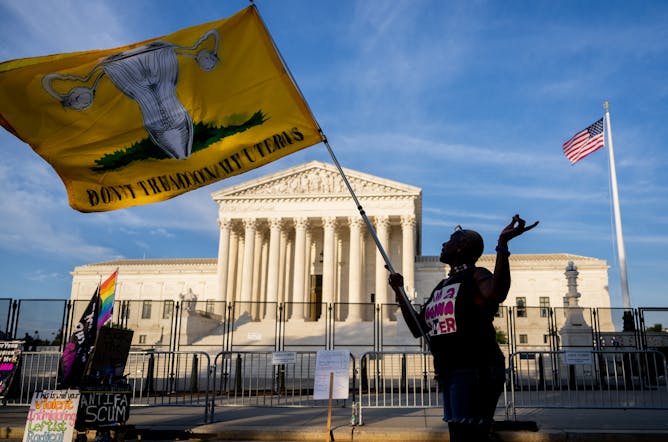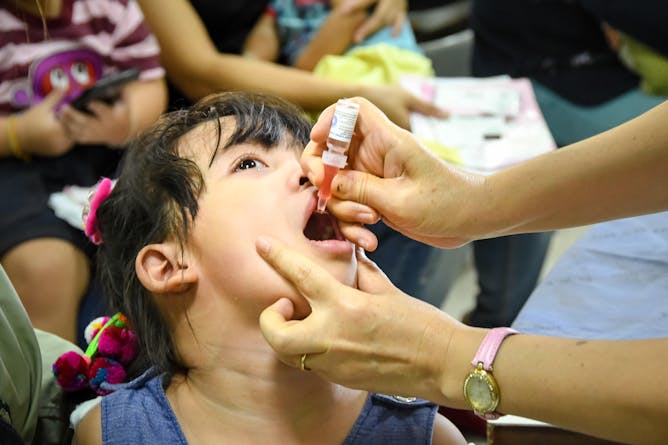|
|
|
|
Growing up in the US, I took for granted that my right to an abortion, should I choose to have one, was protected by the constitution. That right was taken away on Friday, when the Supreme Court overturned Roe v Wade after nearly 50 years. Due to what are known as “trigger laws”, millions of Americans now live in states where abortion is a criminal offence – and more are sure to follow. If you, like many around the world, are wondering what this all means, this piece by health law and constitutional law experts at Boston University explains what you need to know.
Watching from thousands of miles away in the UK, I’m struggling to understand how my siblings, friends, and others I’ve grown up with now have fewer – not more – rights in this area than our mothers and grandmothers.
This decision puts the US among a group of countries that have made it more difficult to access abortion in recent decades. The US is just one piece (albeit a large one) of the global picture on reproductive rights. Claire Pierson, an expert in gender and feminist politics at the University of Liverpool, explains the status of abortion access around the world. Read ongoing coverage of this issue from across our international
network here.
|

|
Avery Anapol
Commissioning Editor, Politics + Society
|
|

A half-century of reproduction rights upended by the Supreme Court.
Brandon Bell/Getty Images
Linda C. McClain, Boston University; Nicole Huberfeld, Boston University
By a 6 to 3 majority, the Supreme Court decided to overrule the landmark Roe decision and end almost 50 years of access to abortion being a constitution right.
|
|
|
-
Claire Pierson, University of Liverpool
An expert explains how reproductive rights are changing globally.
|
|
|
|

Keith Grehan, University of Leeds; Jessica Swanson, University of Leeds
The oral polio vaccine is cheap and effective, but it comes with some risks.
|

Mark Webber, University of Birmingham
The next summit, against a backdrop of war in Ukraine, will be a test of Nato’s solidarity and sense of purpose.
|
|
|
-
John Gradek, McGill University
What’s behind the chaos at airports across Europe and North America? An airline industry expert explains the problems that have resulted in delays and cancelled flights.
-
C Raina MacIntyre, UNSW Sydney
Monkeypox has spread to more than 50 countries and will continue to be monitored. Here’s what we know about monkeypox so far and what researchers want to find out.
-
Susan Booysen, University of the Witwatersrand
The ANC has been using multiple tactics to fend off the looming calamity of not having Ramaphosa as its president, and that of the country, in the clear absence of a credible candidate to replace him.
-
Richard Hoffman, University of Hertfordshire
Most vegan cheeses have little nutritional value.
-
Mary Lynn Young, University of British Columbia; Alfred Hermida, University of British Columbia
Canada is home to a growing number of new digital-born journalism organizations, even though government policy aimed at helping the news industry has focused mostly on the decline of legacy media.
|
|
En français
|
-
Cindy Regnier, Université de Liège
La Lituanie vient de bloquer le transit de nombreux biens vers l’exclave russe de Kaliningrad. Moscou promet de réagir. Analyse d'un bras de fer aux enjeux stratégiques majeurs.
|
|
| |
| |
| |
| |
|
|
|
|
|
|
|